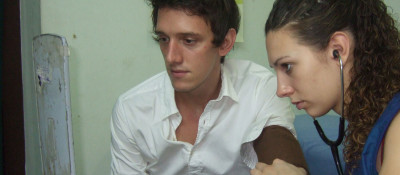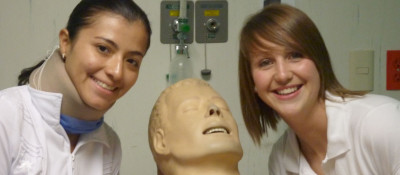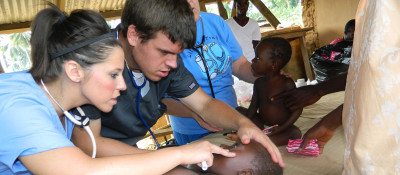Make the Most of Your Volunteer Healthcare Placement Abroad
Published on Wednesday 11 May 2016Getting the Most from Your Medical Work Experience
Medical volunteer projects are a great way of gaining important healthcare work experience in a hospital setting, and often this is experience that you can’t get at home – but taking part in these placements overseas will help you take away more than just clinical experience.
Taking part on a volunteer placement abroad allows you to not only broaden your mind but also to develop other transferable skills that will be useful in your future career.
Improved Employment and Interview Prospects
 Whether you’re studying or taking a gap from employment, volunteering is a great way to fill up your annual leave, summer holiday or gap year. Alongside the new knowledge, skills and cultures you gain, your employment prospects are also greatly improved too.
Whether you’re studying or taking a gap from employment, volunteering is a great way to fill up your annual leave, summer holiday or gap year. Alongside the new knowledge, skills and cultures you gain, your employment prospects are also greatly improved too.
Spending time on a healthcare project overseas is interesting to the medical school interviewer or future employer. It shows them that you are someone who has taken part in a healthcare volunteer placement in a completely unique setting and that will make you stand out in their minds when reviewing candidates.
Volunteering can also help you to increase your network of contacts, expose you to different working practices and embrace a whole host of other skills, which will all look great on your CV when you apply for your next role. You will have the chance to develop skills, assist in areas that you haven’t previous been involved with and learn more about the treatment of illnesses rarely seen at home – all of which can be of value to your (future) employer and help boost your career progression.
Cultural Experiences
![FullSizeRender[16]](http://www.globalmedicalprojects.co.uk/wp-content/uploads/FullSizeRender16-400x300.jpg) One of the best things about travel is meeting new people from a background and culture very different to our own. As soon as we step foot off the plane we are fully immersed into another way of life which is completely different to what we know. Volunteering abroad allows you to not only meet new people and learn more about their culture, but to live their customs and way of life too.
One of the best things about travel is meeting new people from a background and culture very different to our own. As soon as we step foot off the plane we are fully immersed into another way of life which is completely different to what we know. Volunteering abroad allows you to not only meet new people and learn more about their culture, but to live their customs and way of life too.
Living in another country, even if it’s for a short period of time, can provide you with experiences that are truly once in a lifetime and that will stick with you forever.
Communication Skills
 Joining a medical volunteer project overseas will expose you to different languages and dialects. Even in countries where English is widely spoken, strong accents can make communicating more difficult.
Joining a medical volunteer project overseas will expose you to different languages and dialects. Even in countries where English is widely spoken, strong accents can make communicating more difficult.
For some, volunteering in a hospital abroad can be an opportunity to learn a new and interesting language. There is no better way to learn a new language than to be completely immersed into a community where this language is spoken.
For others, working in a healthcare setting where English is not the spoken language is a great opportunity to develop non-verbal communication skills. Non-verbal skills may come in handy when meeting a patient on a ward at home that doesn’t or can’t speak English.
Adaptability
Working in the medical sector you never know what challenges you’ll face, and adapting to different situations at a moment’s notice is a valuable skill.
Volunteering in a healthcare setting overseas is the ultimate expression of adaptability, as it shows that you can work in a hospital very different to home and with colleagues who have had training very different to your own.
Handling Conflicting Opinions

We are constantly faced with differing opinions and views, but knowing how to handle these in a professional manner is a skill that is not taught in the classroom but learnt over time.
Understanding how to overcome these challenges and voice opinions in a considered manner is something you’ll get used to on a placement abroad as in overseas hospitals, with different working practices and spoken languages, opinions are often very different.
Teamwork
 A healthcare professional is always part of a team, and volunteering abroad will be a great way to demonstrate and develop these skills.
A healthcare professional is always part of a team, and volunteering abroad will be a great way to demonstrate and develop these skills.
Volunteering a great way to show willingness to be a team player and develop those crucial teamwork skills that so many employers look for. In another country with different languages, rules, and cultures to abide by, you’re thrown into a situation where teamwork is essential especially where a patient’s health is at risk.
Volunteering abroad is one of the most generous things you can do, but in addition to the clinical experience, there are other lessons and skills to be learnt which carry their own rewards too.
